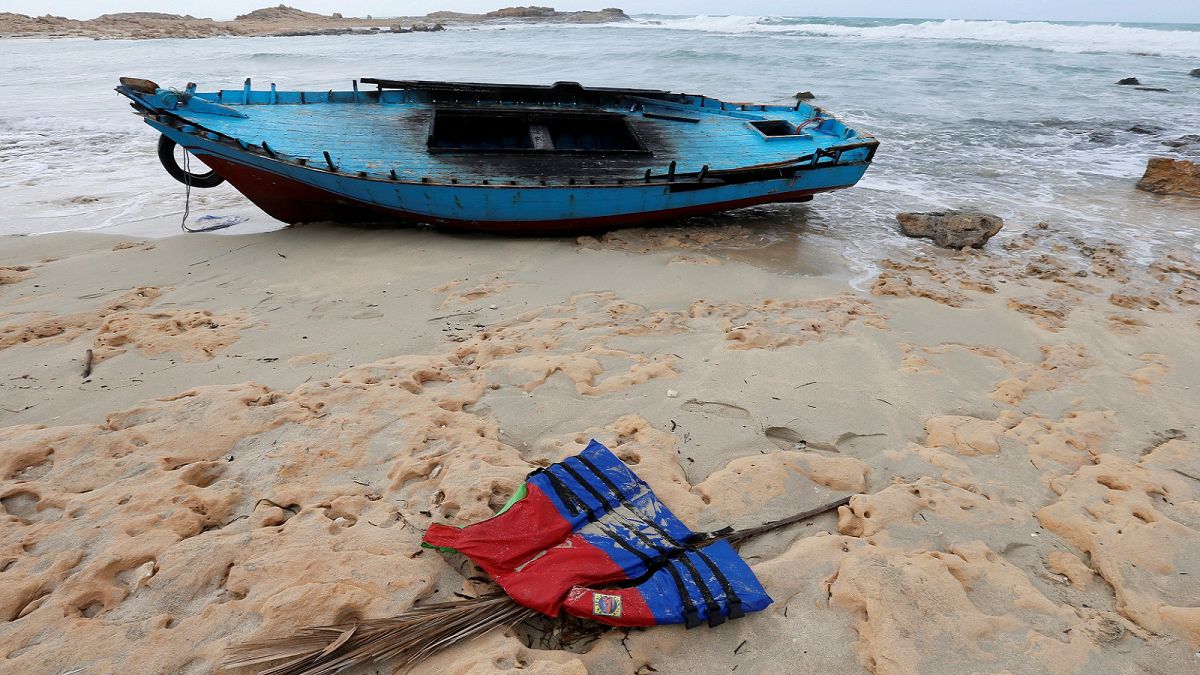The EU must look at Libya beyond the lens of curbing migration. This approach has exacerbated conflict in the country and fuelled violence and human rights abuses.
On March 26, EU governments agreed to extend the mandate of Operation Sophia - formally the European Union Naval Force Mediterranean (EUNAVFOR Med) - for six months. The EU anti-smuggling mission in the Mediterranean will be scaled down with the retrieval of its naval assets.
The technical prolongation option was chosen after Italy, who was leading the mission, refused to continue the operation unless other EU countries to open their ports for disembarkation.
The decision fails to address the lack of capacity to rescue people in distress and shows the unwillingness to have a sustainable common EU action in the Central Mediterranean.
Operation Sophia’s mandate did not include saving lives at sea and stopped rescuing people in 2018, after 49,000 people were saved since 2015.
A recent leak confirmed EU officials knew the operation was underperforming in disrupting smuggling networks and had a substantial human cost, making the crossing of the Mediterranean more perilous for people. If arrivals to European soil dropped, the chances of dying at sea remained high.
European governments have multiplied legal and bureaucratic hurdles to stop NGOs operations to save human lives at sea. It is high time for the EU to put in place a collective, predictable lifesaving system in the Mediterranean.
EU action in the Central Mediterranean cannot be separated from its policies in Europe’s southern shores. In Libya, the EU must intensify its efforts for a unified and legitimate government in Tripoli, or there will be neither lasting stability in the country nor improvement of migrants’ conditions.
In overcrowded facilities, at least 5,000 migrants and refugees suffer abuses and live in inhumane conditions as regularly denounced by countless reports, including the latest report by the Women’s Refugee Commission on routine sexual abuses of women in detention centres. Outside confinement, migrant workers have increasingly become vulnerable to extortion, kidnapping and abduction.
The United Nations will organise the national conference on 14-16 April, a national reconciliation summit that will focus on stabilising Libya. It will be an opportunity for EU countries to unite their efforts to support of the process of reconciliation and revise their migration-related support to Libya.
The country is as close to a fully blown civil war as it is to a National Conference and a lasting peace and stability. EU migration management in Libya is an important part of the picture.
Through the EU Trust Fund, EU assistance and training in Libya meant de facto paying of militias to stop smuggling migrants and refugees and crack down on those that continue to do so.
The “reconversion” of smugglers reduced arrivals but it also meant that the militias involved shifted to other illegal activities, such as fuel smuggling.
In Libyan coastal towns facing Sicily, funding coming from Europe sparked conflict between militias that received funding and those that did not. This is how the Libyan war economy works, according to the Chatham House report.
With EU financial support, the Libyan Coast Guard is intercepting people at sea and bringing them back to detention centres in Libya. Bilaterally, EU governments are also beefing up the Libyan Coastguard. After Italy signed a bilateral [Memorandum of Understanding](C:\Users\siemienski\Desktop\• https:\eumigrationlawblog.eu\wp-content\uploads\2017\10\MEMORANDUM_translation_finalversion.doc.pdf) in 2018 for increased assistance and support, [France recently announced](C:\Users\siemienski\Desktop\• https:\www.lemonde.fr\international\article\2019\02\22\paris-livre-des-bateaux-a-tripoli-pour-contrer-les-migrants_5426590_3210.html) six vessels will be given to intercept people at sea.
In 2018, around 15,000 people were rescued and brought back; in 2019 at least 1,000 people left the Libyan coasts in the first two months of 2019.
The UN and the EU recognised migrants rescued in international waters should not be sent back to Libya to detention centres. Alarm Phone documented how Italy and Malta are abdicating their responsibility for coordination of rescue operations and the Libyan coastguards that bring people back to unsafe ports in Libya.
EU financial support to the Libyan Coastguard and the Tripoli government should be conditional on the end of arbitrary detention and the start of effective monitoring and accountability mechanisms for the Libyan Coastguard, State authorities and non-state actors.
In the longer run, EU money should address structural dysfunctionalities of the Libyan state and reforming its justice system, including on asylum.
The EU must look at Libya beyond the lens of curbing migration. This approach has exacerbated conflict in the country and fuelled violence and human rights abuses. Last month, France, Italy and the UK decided in a [joint statement](C:\Users\siemienski\Desktop\• https:\www.diplomatie.gouv.fr\fr\dossiers-pays\libye\evenements\article\libye-declaration-conjointe-de-la-france-de-l-italie-du-royaume-uni-et-des) to put their weight behind the UN’s efforts towards the elections in the country.
Now, ahead of the National Conference in April, efforts must be made to have a concerted action by EU member states to support the reconciliation process, rethink the engagement on migration and develop a fully coordinated Common Foreign and Security Policy in Libya.
Srdjan Cvijic is a senior policy analyst on EU foreign policy in OSEPI leading the advocacy on enlargement and southern neighbourhood
Alessia Mora is a policy analyst on EU migration and asylum policies at the Open Society European Policy Institute

